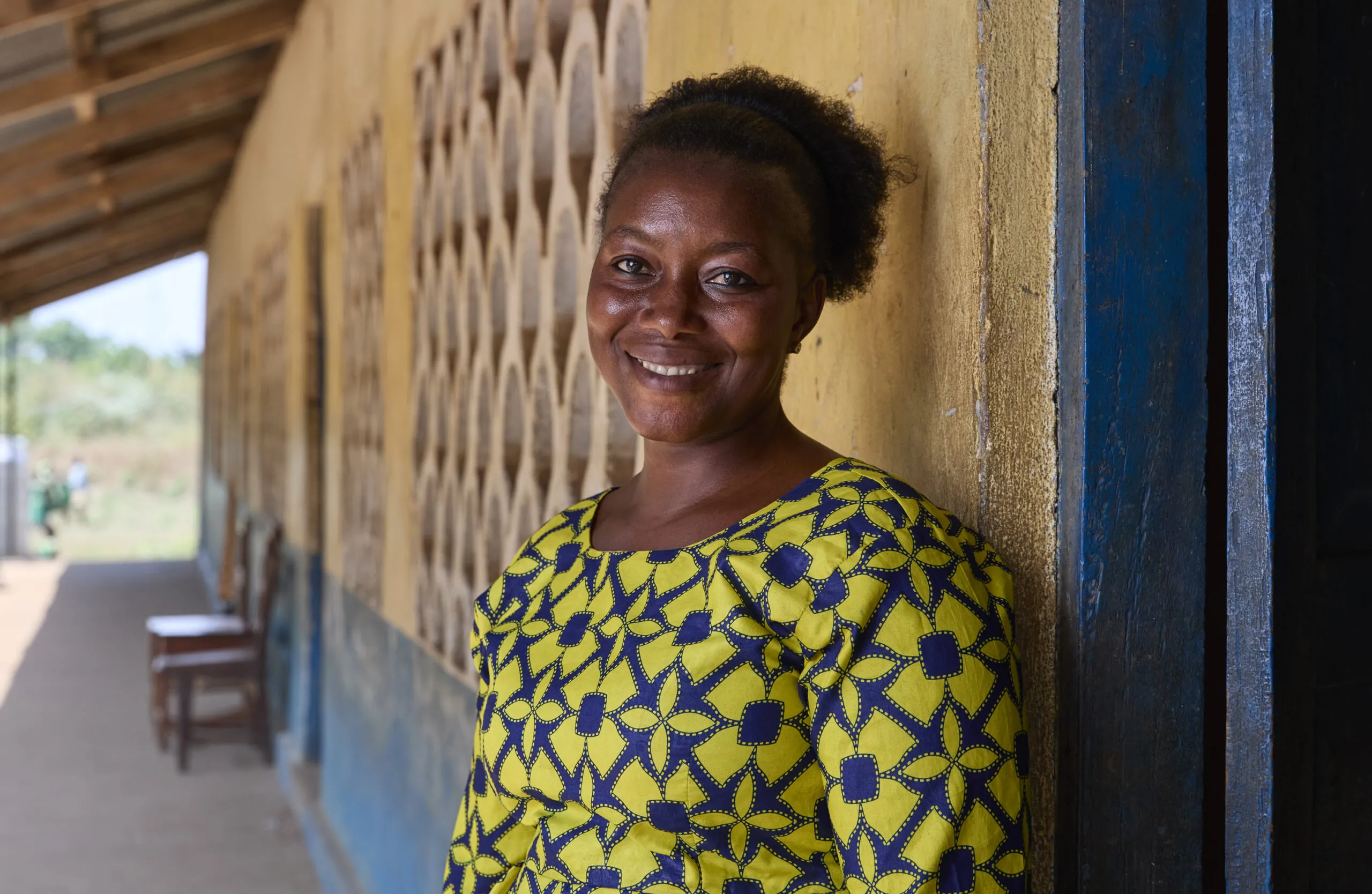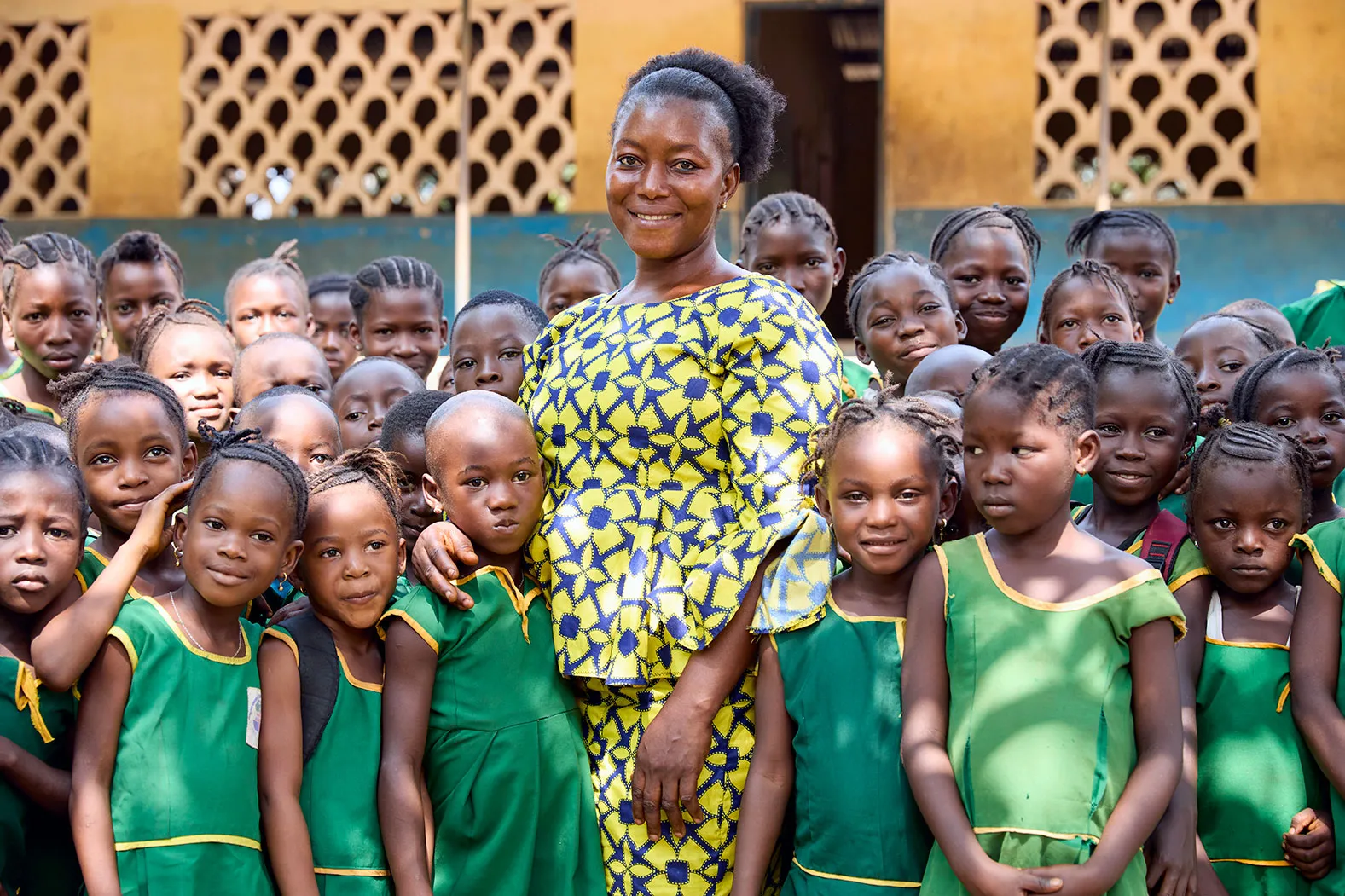Mabinty is one of 5,000 people reached by CARE’s Women Shine economic empowerment project over the last two years, developed with support from Tiffany & Co.
Since receiving entrepreneurship and financial literacy training through Women Shine, Mabinty has boosted her business selling petrol, groundnuts, and general medicines. She’s increased her annual savings from $50 a year to $150 —in a country where the median income averages $2.96 per day.
“I was not doing anything much, but when CARE came here with the project, they first trained us on business entrepreneurship, which really taught me a lot,” Mabinty says. “After that, they introduced the Village Savings and Loan Association (VSLA).”
While Mabinty’s husband was initially hesitant for her to participate in the savings group, soon enough both were saving and investing their money regularly and wisely.
CARE’s research indicates that for every $1 invested in a savings group, average income increases by $18.85 within 5 years. In addition, women in savings groups are 15% more likely to take on local leadership roles.
Initially shy, Mabinty says, “I am now bold, and I am proud to stand in public and talk.”
Today, she is a force for change at her local community as a school volunteer and the first female teacher. She sought out this leadership role when she was disappointed to learn that the only teachers at the school were male. She’s able to volunteer her time because of the success of her small businesses, and she’s encouraging other women to step up to leadership roles –in the school and in their business ventures.


